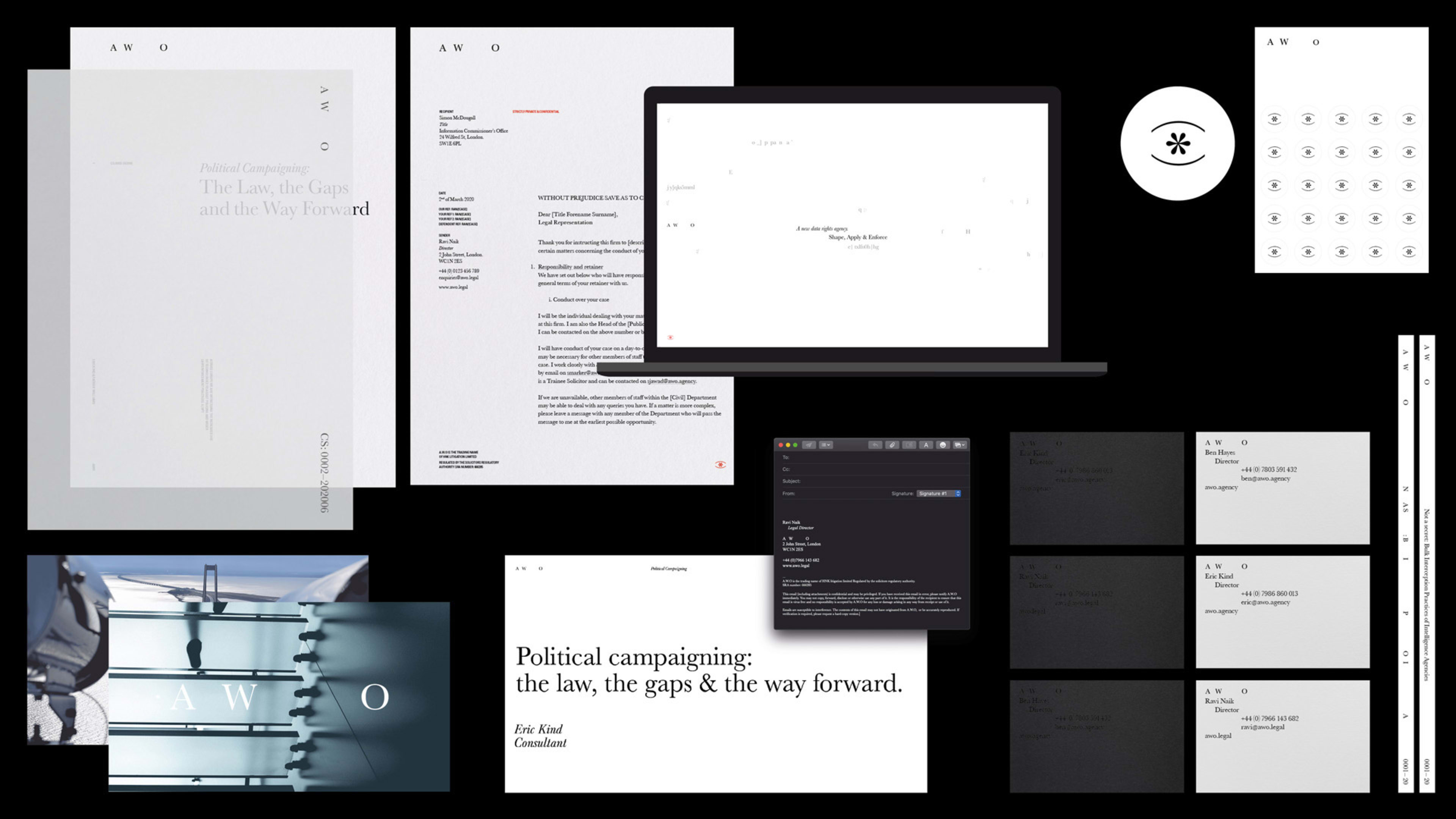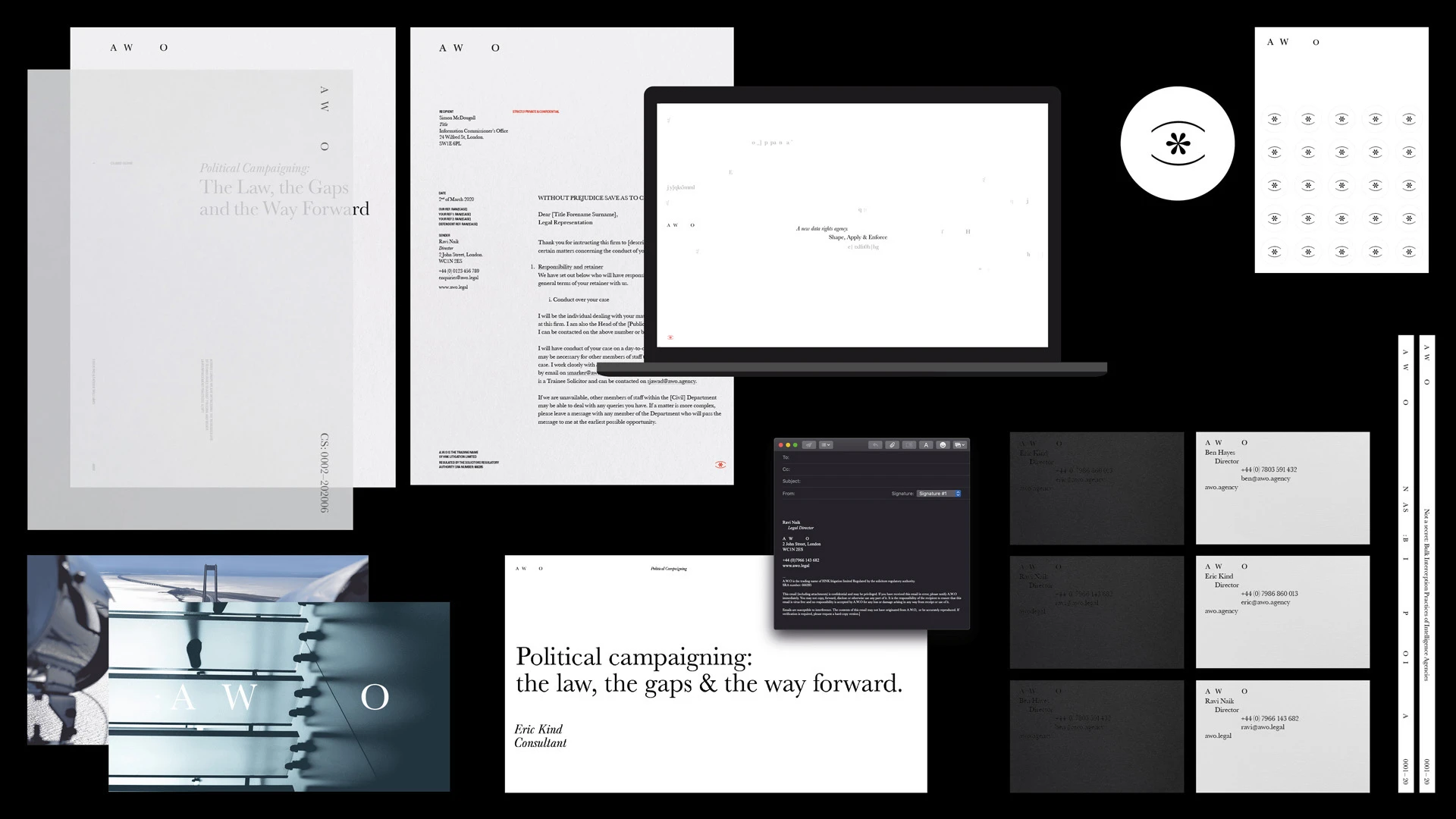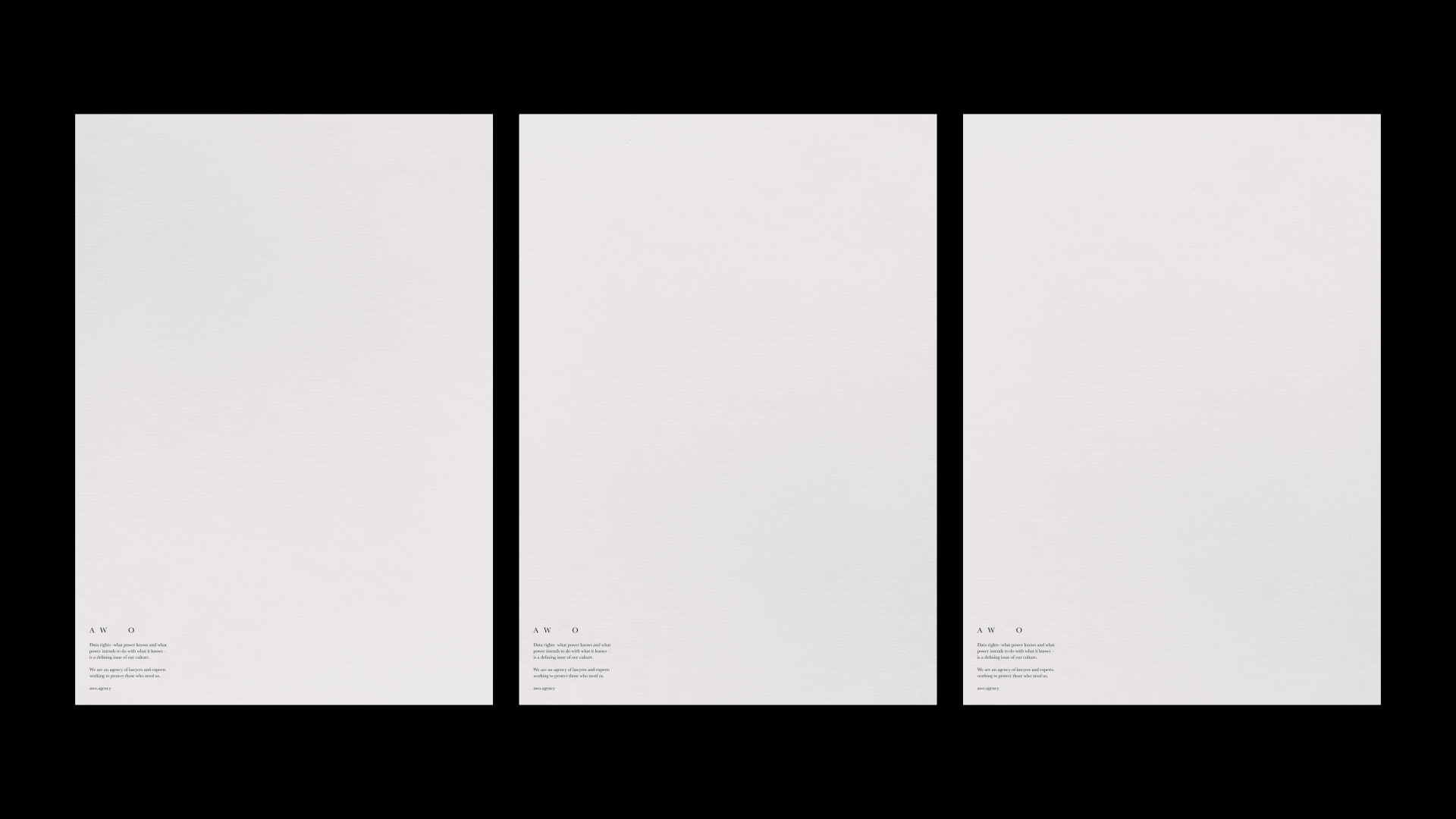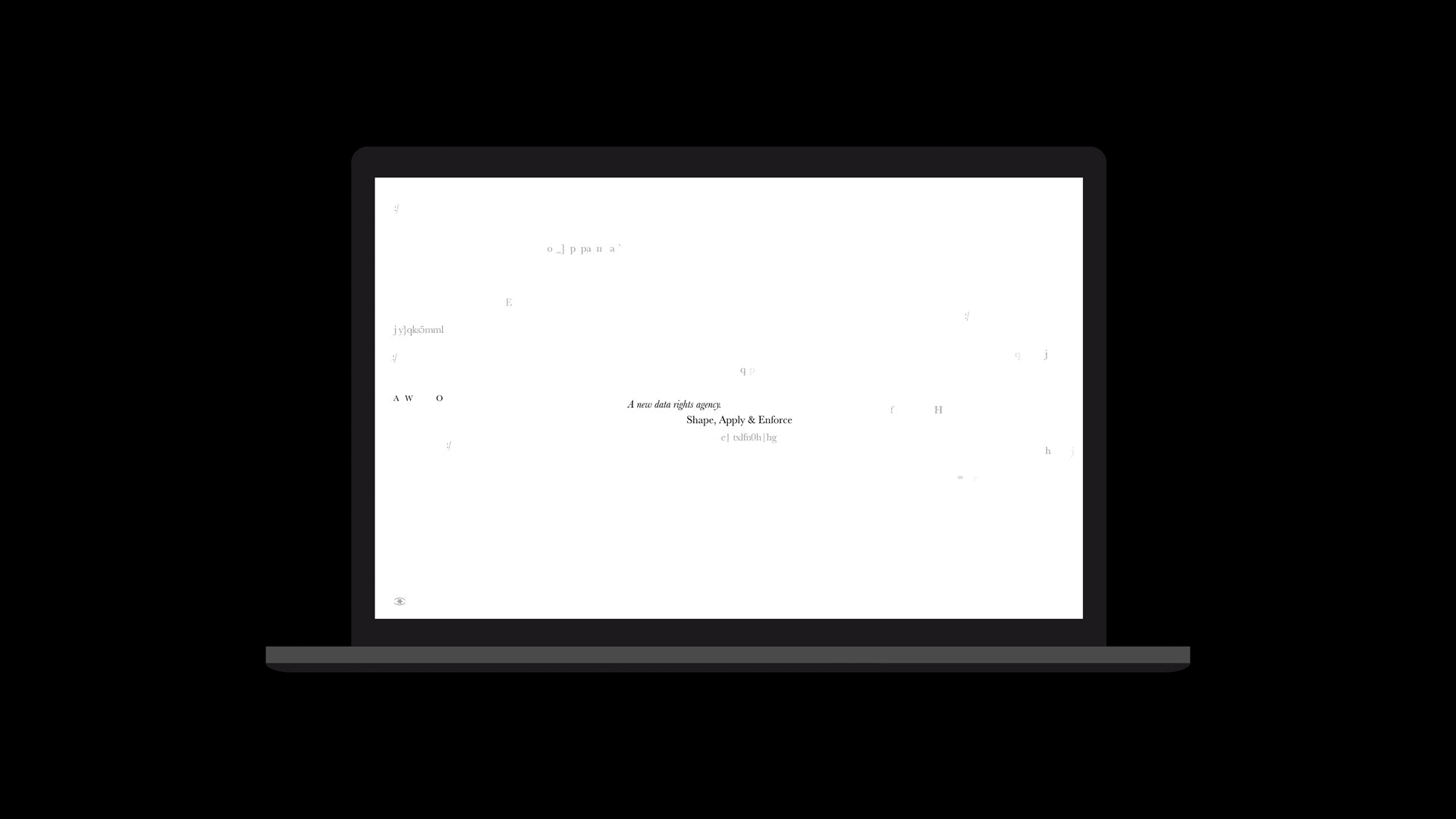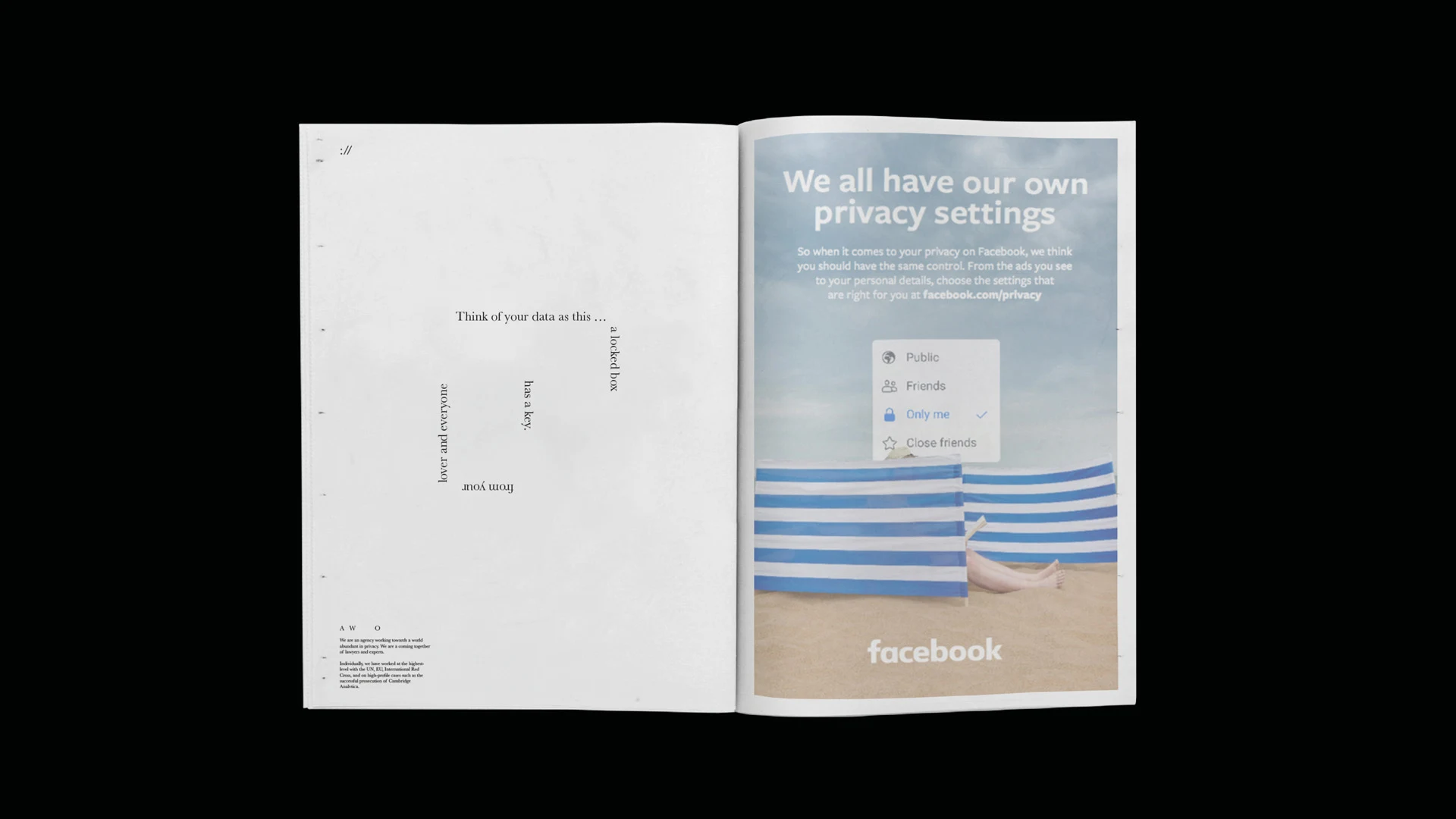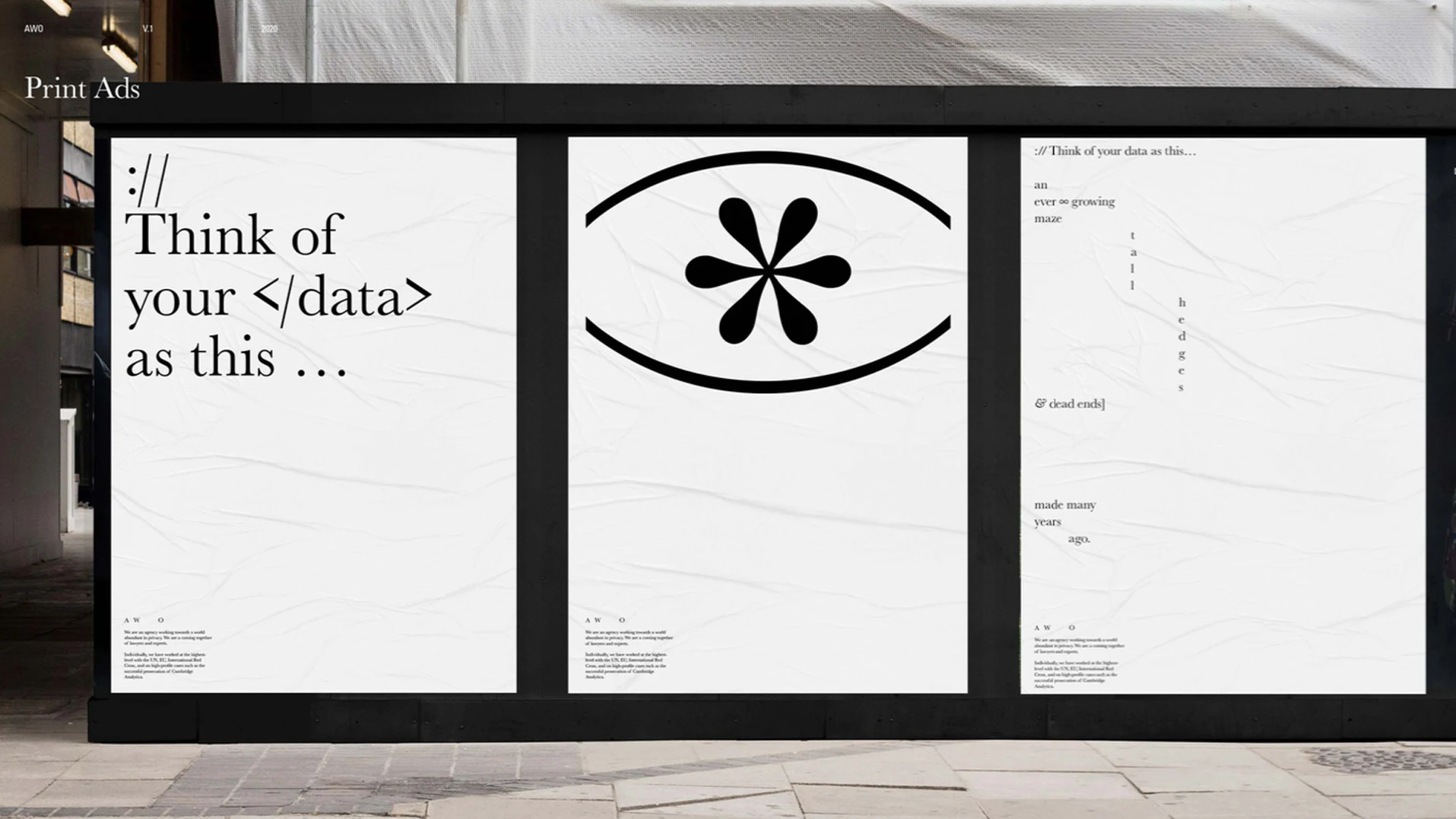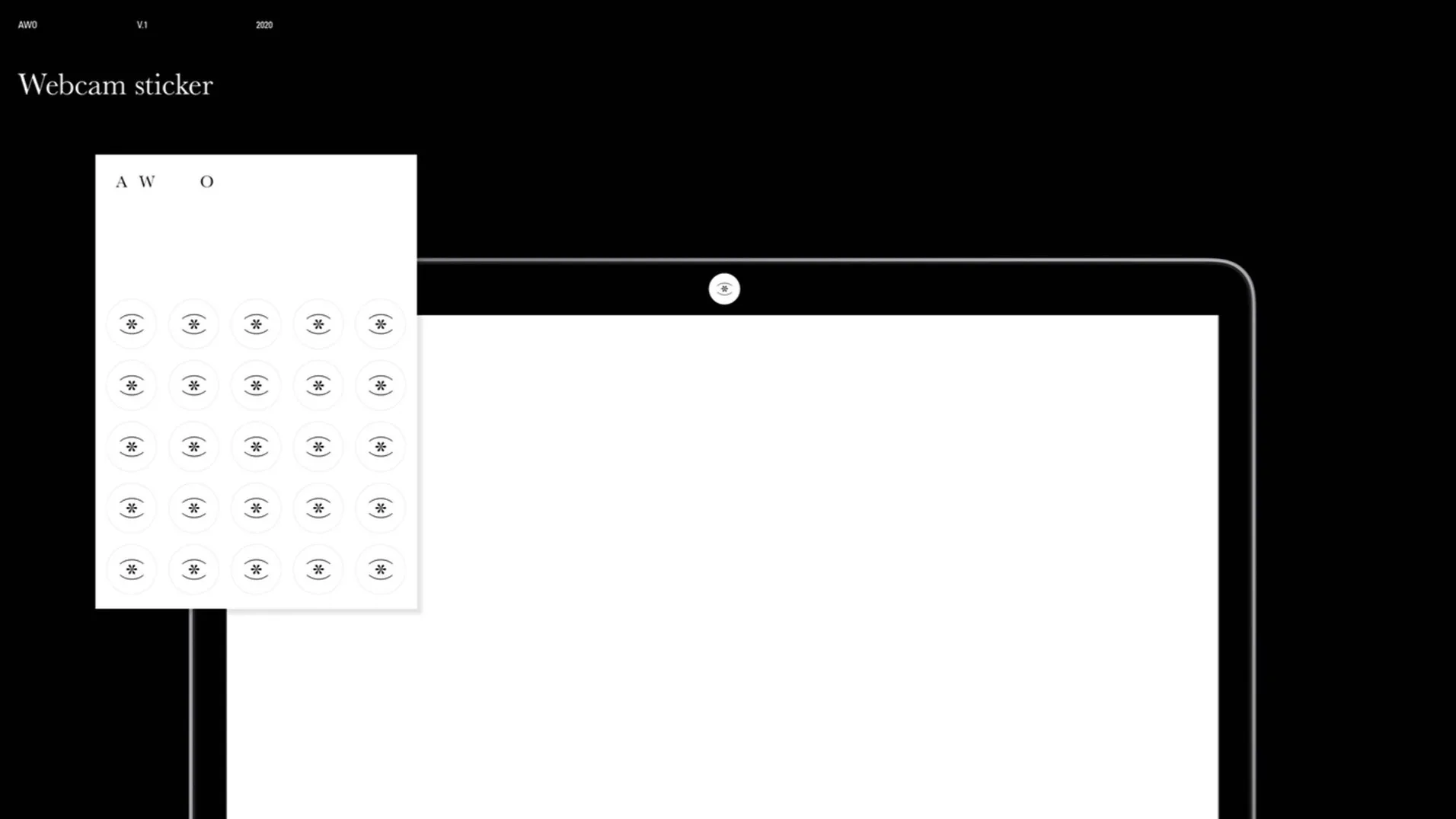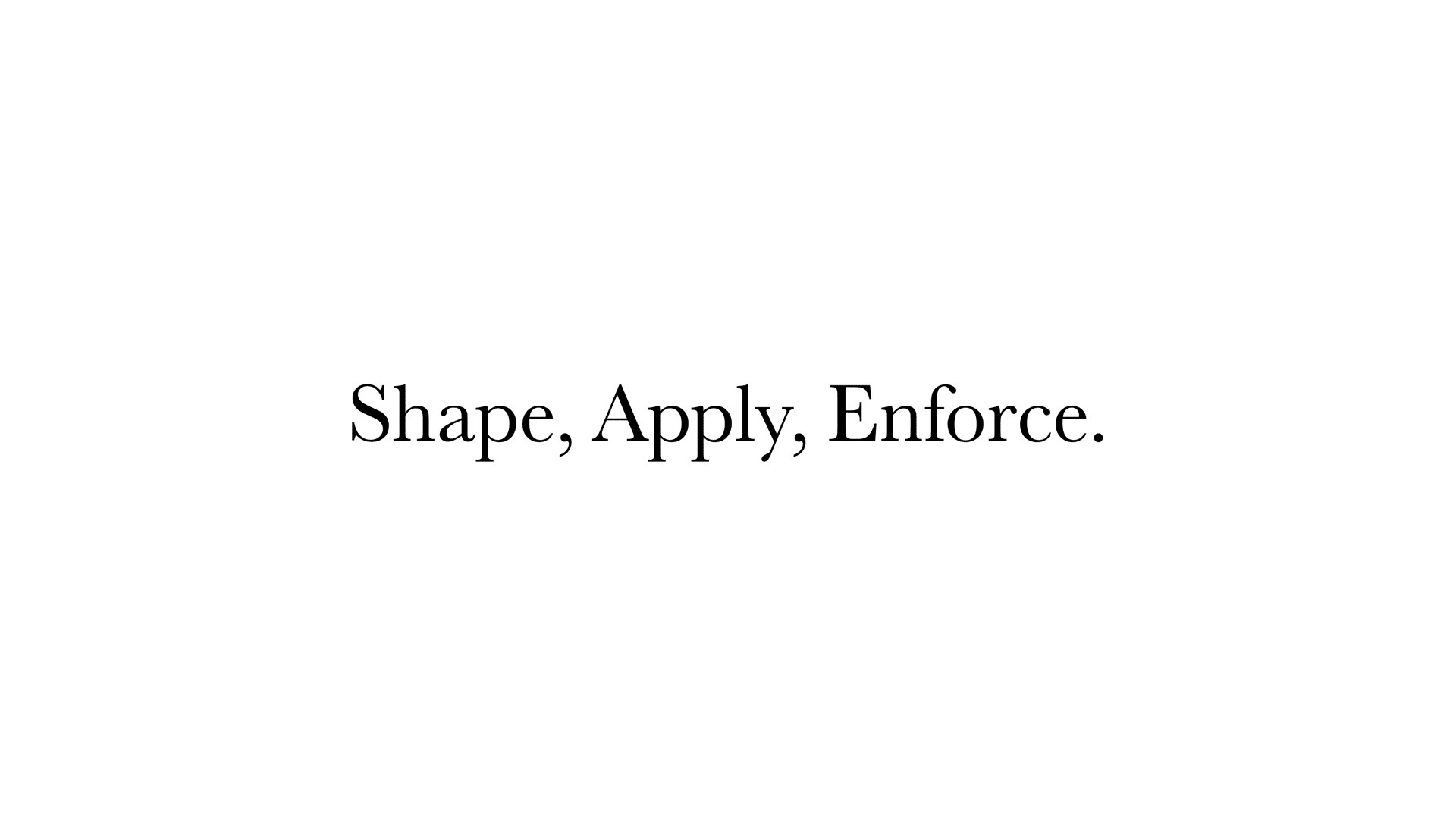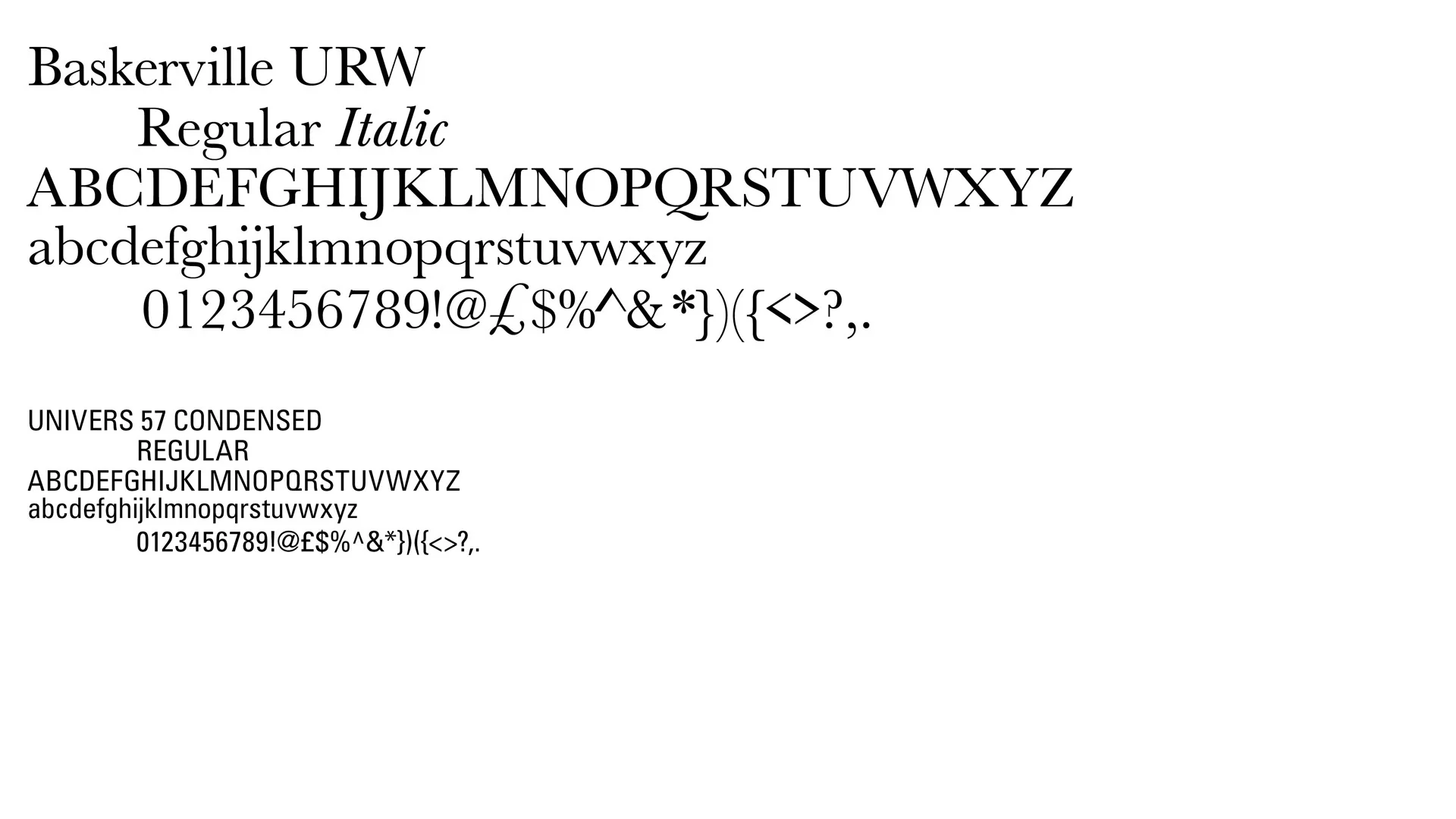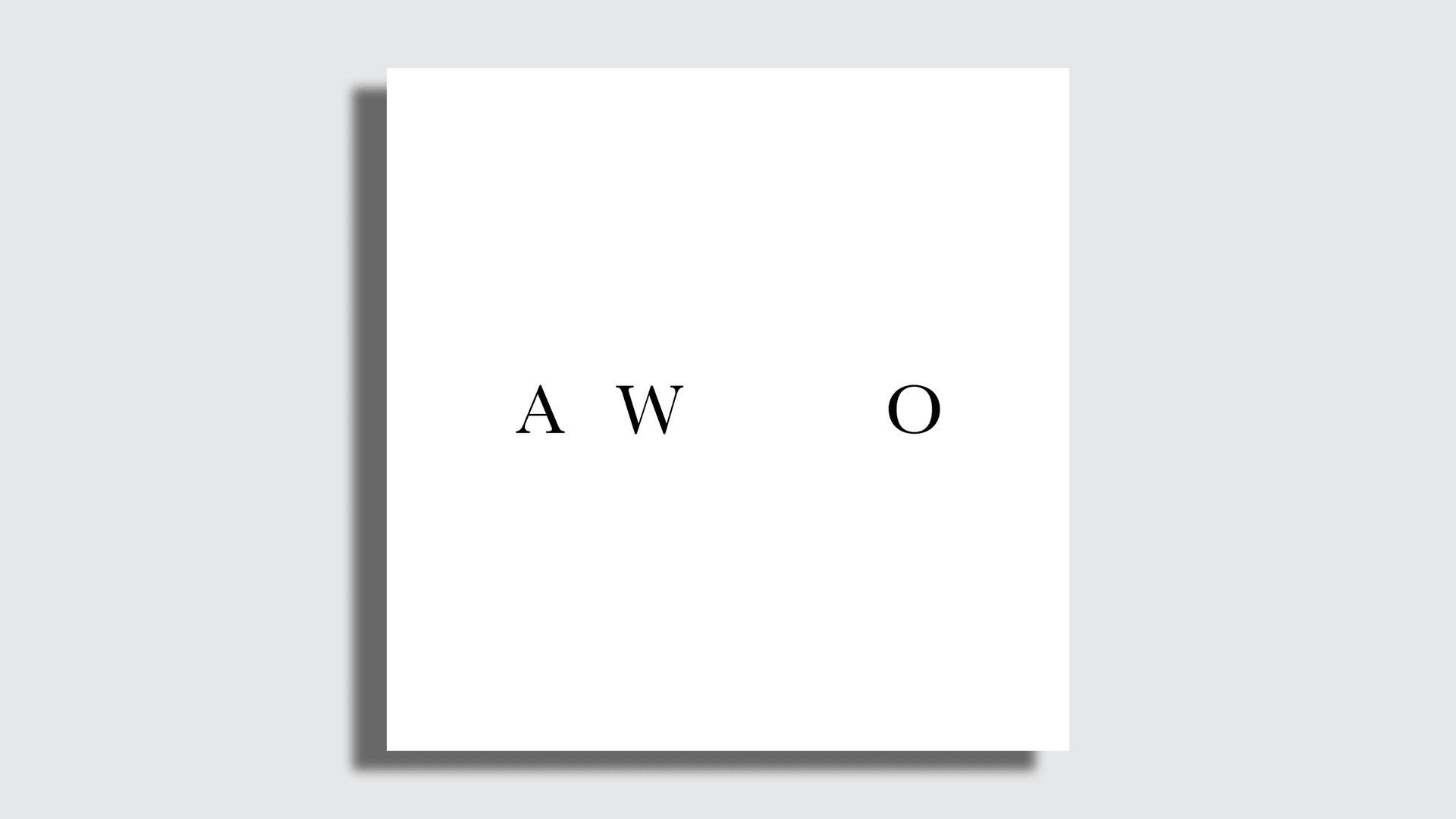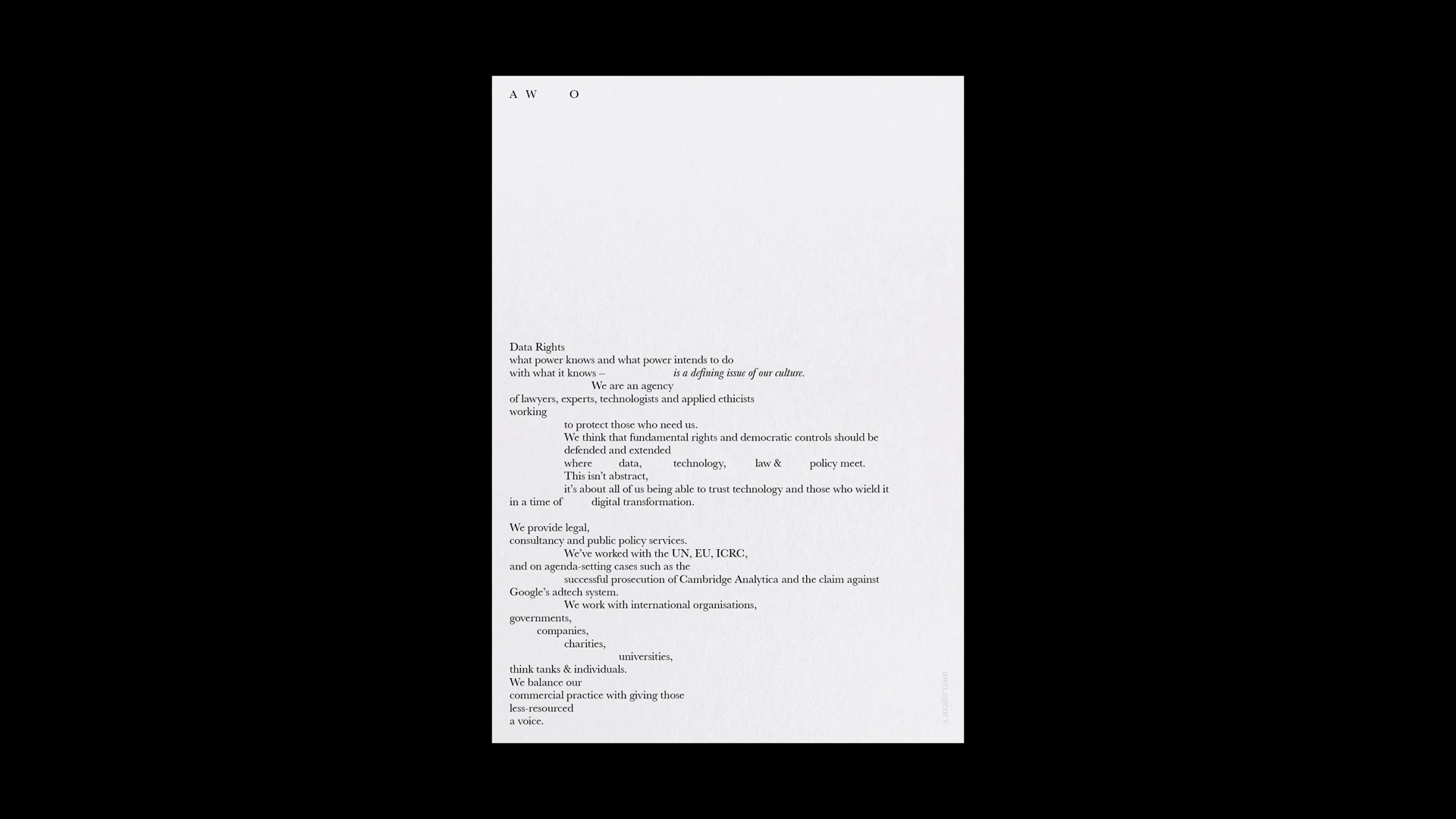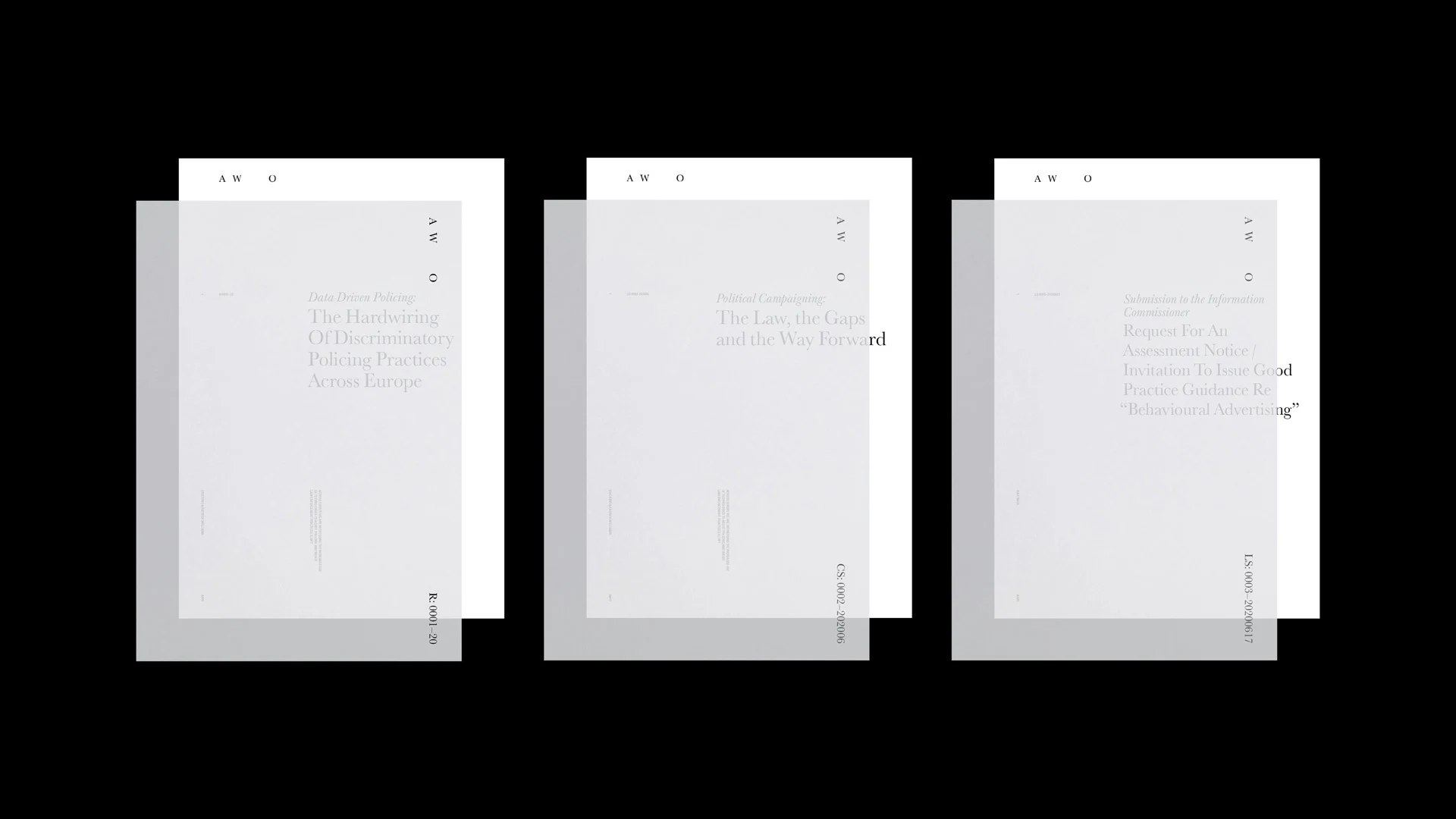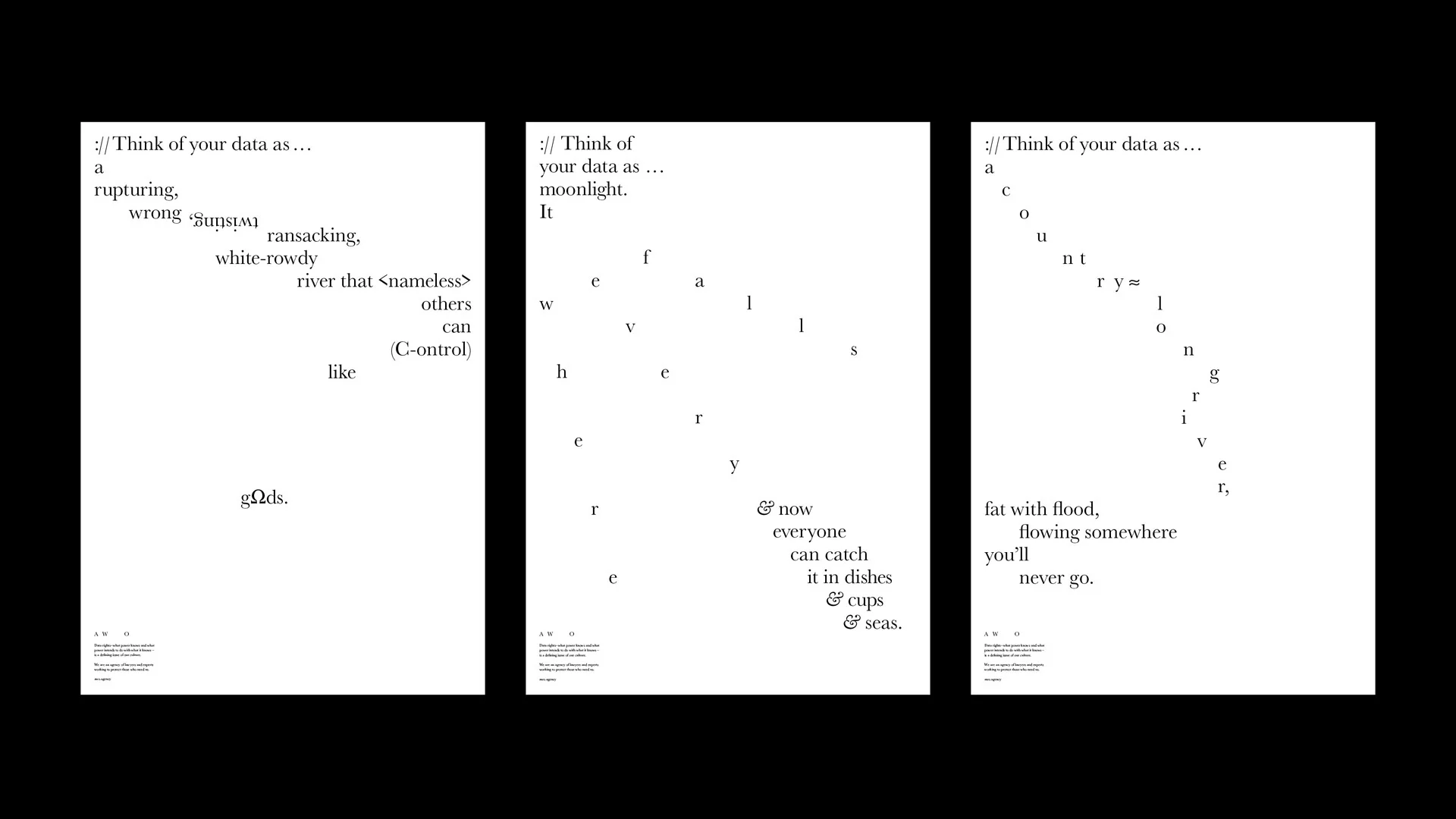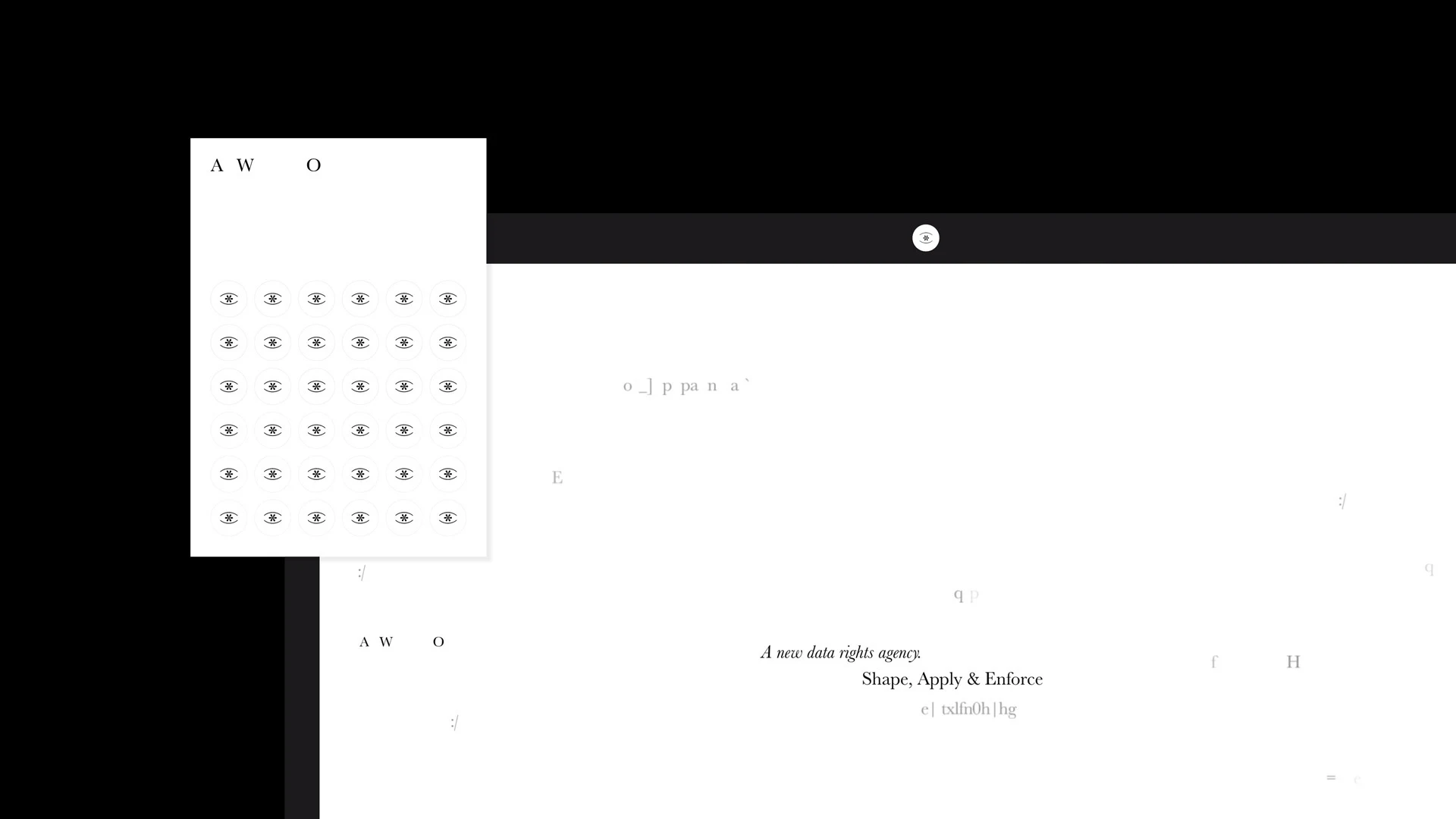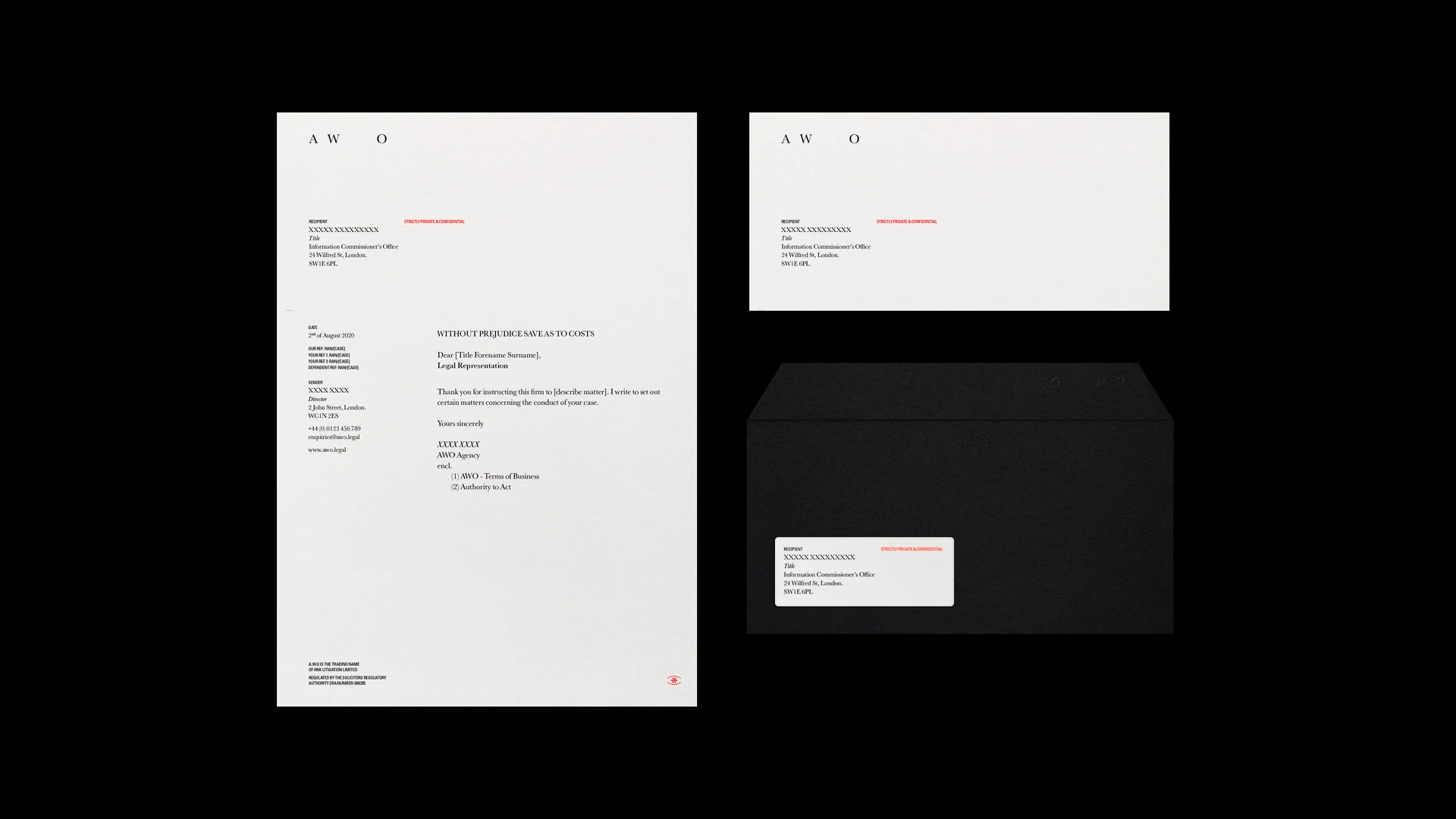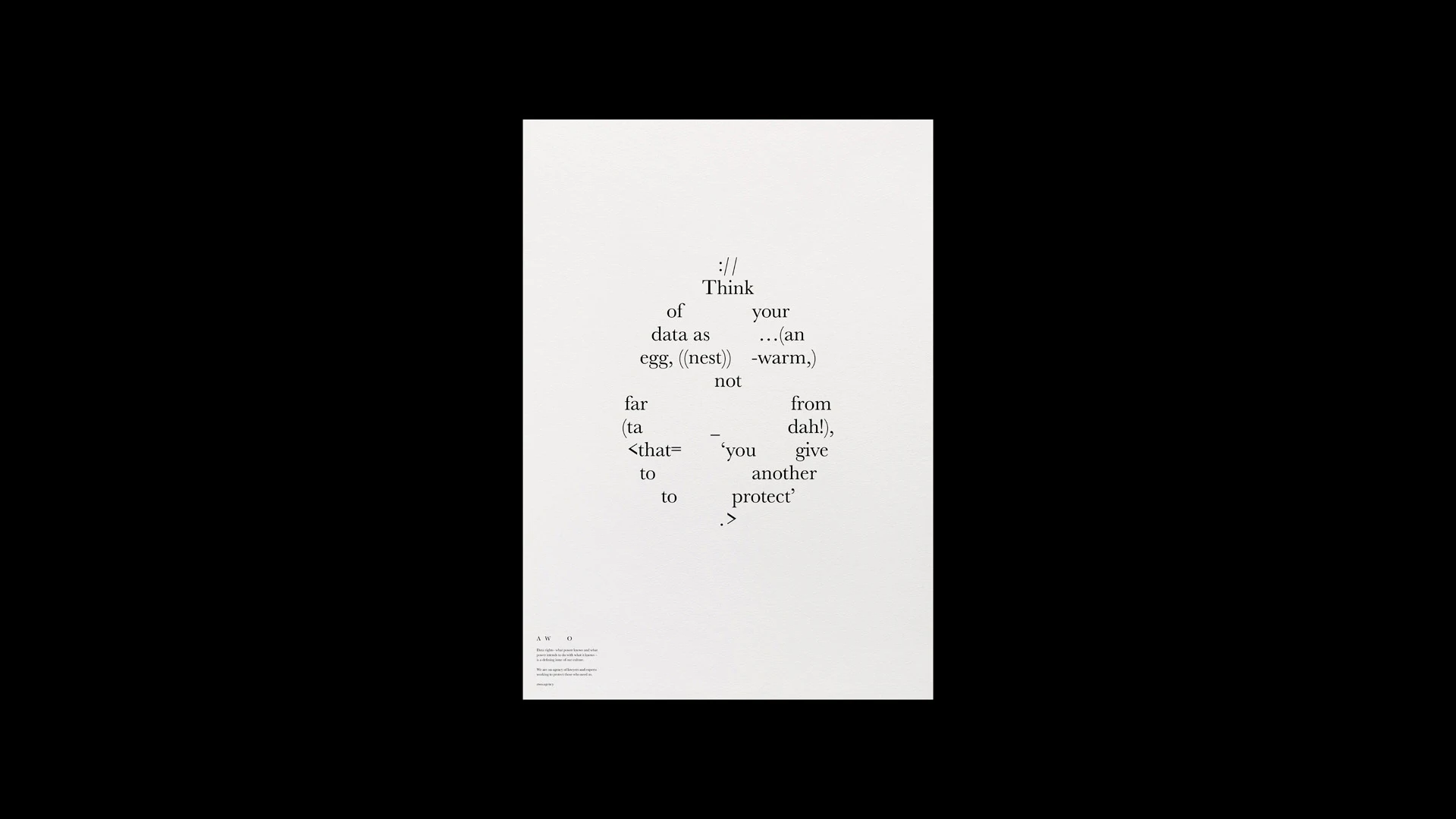You’re being watched. Data trackers follow every digital move and, unless you have privacy protections in place, your data is sold to all sorts of entities. And there’s not much you can do about it.
A new data rights agency, which claims to be the U.K.’s first, aims to change that. The agency, cofounded by data rights lawyer Ravi Naik (featured in Netflix’s The Great Hack) and other heavy hitters in the data privacy realm, offers legal, consulting, and public policy services as they relate to emerging technologies and data. And the firm tapped London agency Accept & Proceed not only to brand it—but to name it too.
David Johnston, founder and executive creative director of Accept & Proceed, working with poet Thomas Sharp, turned to a surprisingly romantic, retrofuturist source of inspiration. It’s a 1967 poem entitled “All Watched Over by Machines of Loving Grace,” by Richard Brautigan, about how we come to live in harmony with technology and computers become our caretakers (or, if you’re a glass-half-empty type, our overlords). “You get to the end of the poem and you don’t quite know whether you’re watched over in a good way or a bad way,” says Johnston. “It becomes a bit dystopian if you want it to be.” That poem, and its ambiguous message about tech’s role in our lives, unfurls as the agency’s visual brand: from the wordmark, to copy layout, to the fact that it actually hired a poet to write the copy. It also became the agency’s name—AWO.
Data privacy is a prescient concern, especially in an election year. In 2016, political consulting firm Cambridge Analytica misappropriated data from 87 million Facebook profiles to benefit the Trump campaign. While Cambridge Analytica filed for bankruptcy, not much else has changed. Tech regularly uses dark patterns to encourage users to give away their data, and the industry has been accused of undermining democracy.
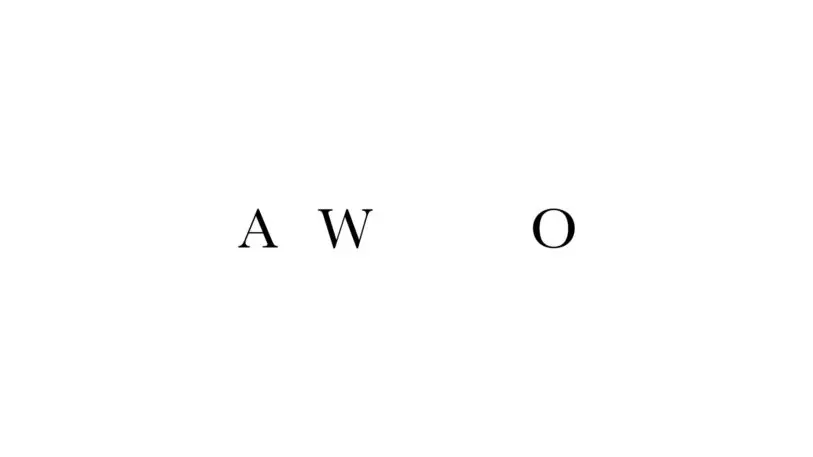
[Image: AWO]The poem is also referenced with the brand’s bookish typeface, Baskerville, and by laying out the black-and-white copy in what looks like stanzas or lines of code. The copy follows the rules of “concrete poetry,” when text is placed in a way that gives the copy itself a visual form (such as a spiral, for instance). The structure of the text draws the eye to the words themselves, written by Sharp.
[Image: AWO]There are also visuals that reinforce what the agency does—protect you from spying. CCTV imagery reinforces a sense of being observed; there’s a red light on the site to indicate you’re not being surveilled; and expressive, typographic black-and-white eye stickers to put up over your computer camera.
As Johnston will tell you, creating a brand is all about story building. That’s why they started with a poem. But being one with technology sounds a lot less idyllic in the 21st century. There’s a reason Johnston described AWO’s mission as “trying to safeguard humanity.”
Recognize your brand’s excellence by applying to this year’s Brands That Matter Awards before the final deadline, June 7.
Sign up for Brands That Matter notifications here.
